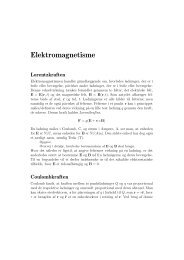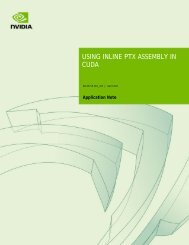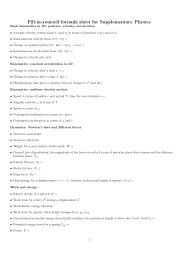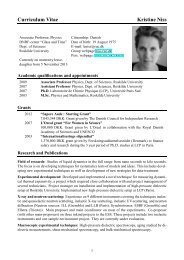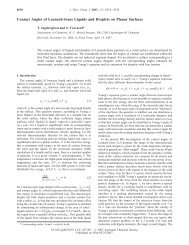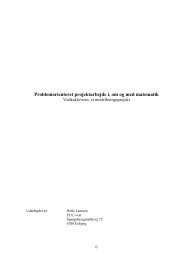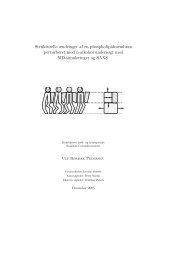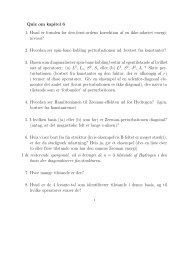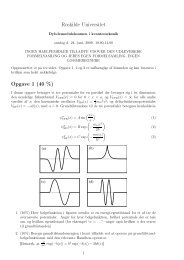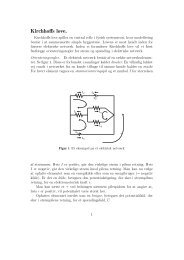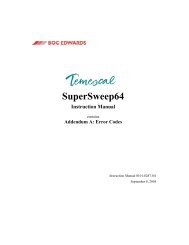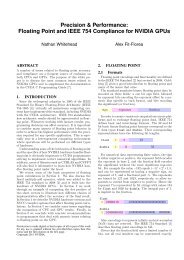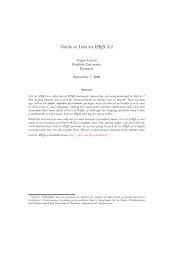Ph.D. thesis (pdf) - dirac
Ph.D. thesis (pdf) - dirac
Ph.D. thesis (pdf) - dirac
You also want an ePaper? Increase the reach of your titles
YUMPU automatically turns print PDFs into web optimized ePapers that Google loves.
A.4. DBP 199<br />
peak differently at different temperatures and it consequently has an effect on the<br />
determined temperature dependence of the peak position.<br />
A.4 DBP<br />
O<br />
O<br />
O<br />
O<br />
Dibutyl-phthalate (DBP) is a benzene ring with two identical side groups. The sum<br />
formula is C 16 H 22 O 4 and the density at ambient conditions is ρ = 1.0459 g/mL.<br />
The sample used for the experiments is from Sigma-Aldrich and it has been used as<br />
acquired.<br />
The dynamical quantities are determined in this work and we also discuss the<br />
agreement with literature data. We find m P = 67, m ρ = 56 and T g = 176 and<br />
dT g /dP = 0.1 K.MPa −1 in the low pressure limit. We moreover find that the exponent,<br />
x = d log e(ρ)/d log ρ is dependent on density (see section 5.2.1).<br />
The determination of m ρ and x requires knowledge of the density dependence of the<br />
relaxation times. To do this, we need the pressure and temperature dependence of<br />
the density. However, this data is only available at high temperatures [Bridgman,<br />
1932]. In the following we give a detailed description of how we have extrapolated<br />
these data to lower temperatures and higher pressures and we carefully verify that<br />
the extrapolations do not lead large errors on the results reported in section 5.2.1.<br />
The expansion coefficient, α P , is calculated at two temperatures from the data of<br />
Bridgman [1932], this gives a weakly decreasing α P with decreasing temperature.<br />
We assume that the temperature dependence of α P is linear in the whole temperature<br />
range and integrate α P ρ dT to obtain ρ on the atmospheric pressure isobar. The<br />
pressure dependence of the densities reported by Bridgman [1932] are well described<br />
by the Tait equation fits given by Cook et al. [1993], these fits give temperature dependent<br />
Tait parameters c and b (which are directly related to the compressibility<br />
and its first order pressure derivative). We have linearly extrapolated the temperature<br />
dependence of these parameters and used the corresponding temperature<br />
dependent Tait equation to calculate the pressure dependence along each isotherm.<br />
The extrapolation of the derivatives rather than direct extrapolation of the densities<br />
gives is expected to give a smaller error on the obtained density. We have moreover<br />
checked that this procedure gives physically reasonable pressure and temperature<br />
dependencies of the expansivity and the compressibility [Minassian et al., 1988].



